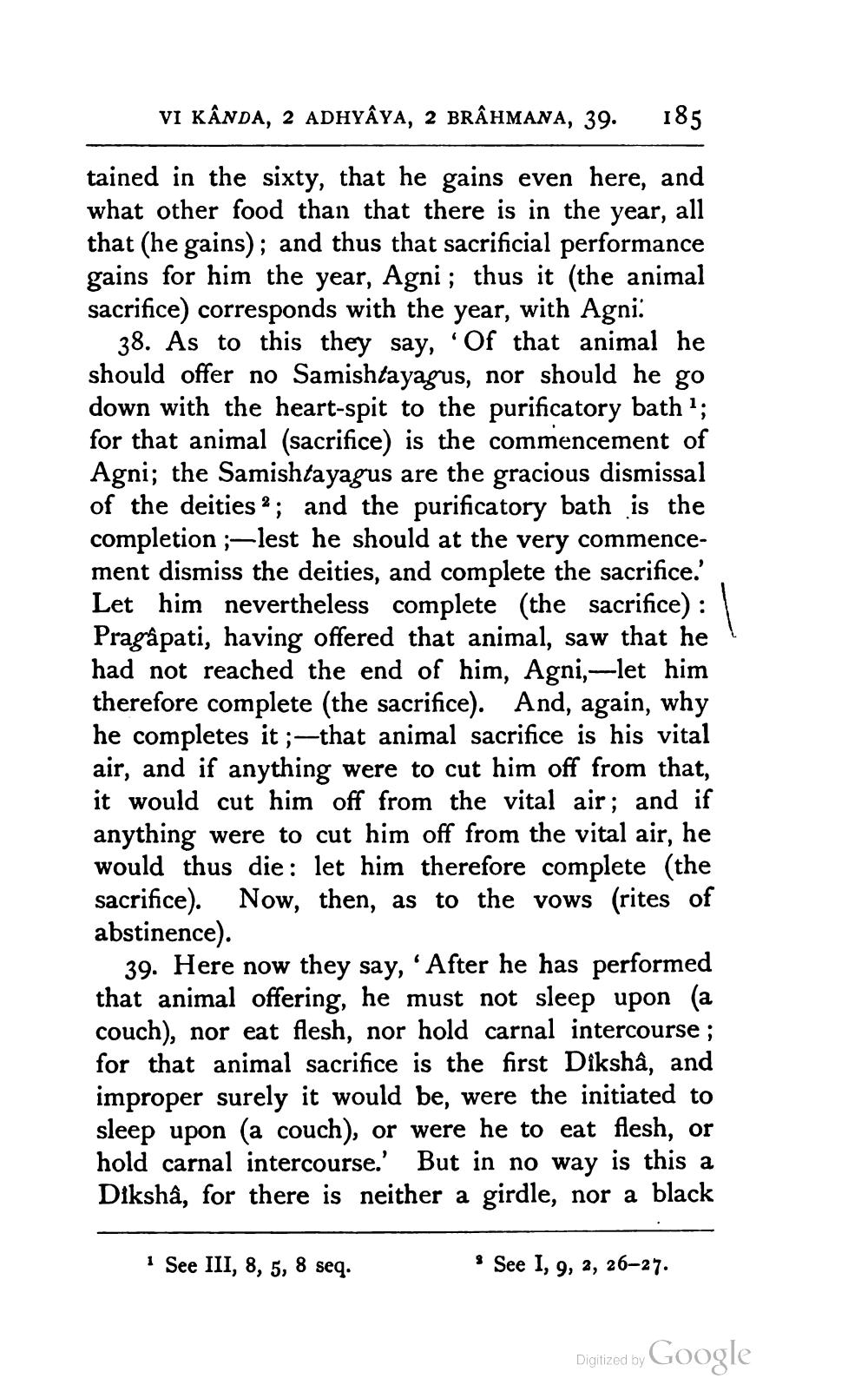________________
VI KÂNDA, 2 ADHYAYA, 2 BRÂHMANA, 39.
185
tained in the sixty, that he gains even here, and what other food than that there is in the year, all that (he gains); and thus that sacrificial performance gains for him the year, Agni ; thus it (the animal sacrifice) corresponds with the year, with Agni:
38. As to this they say, 'Of that animal he should offer no Samishtayagus, nor should he go down with the heart-spit to the purificatory bath 1; for that animal (sacrifice) is the commencement of Agni; the Samishtayagus are the gracious dismissal of the deities 2 ; and the purificatory bath is the completion ;-lest he should at the very commencement dismiss the deities, and complete the sacrifice.' Let him nevertheless complete (the sacrifice) : Pragâpati, having offered that animal, saw that he had not reached the end of him, Agni,—let him therefore complete (the sacrifice). And, again, why he completes it ;—that animal sacrifice is his vital air, and if anything were to cut him off from that, it would cut him off from the vital air; and if anything were to cut him off from the vital air, he would thus die: let him therefore complete (the sacrifice). Now, then, as to the vows (rites of abstinence).
39. Here now they say, 'After he has performed that animal offering, he must not sleep upon (a couch), nor eat flesh, nor hold carnal intercourse ; for that animal sacrifice is the first Dikshâ, and improper surely it would be, were the initiated to sleep upon (a couch), or were he to eat flesh, or hold carnal intercourse.' But in no way is this a Dikshâ, for there is neither a girdle, nor a black
See III, 8, 5, 8 seq.
s See 1, 9, 2, 26–27.
Digitized by Google




